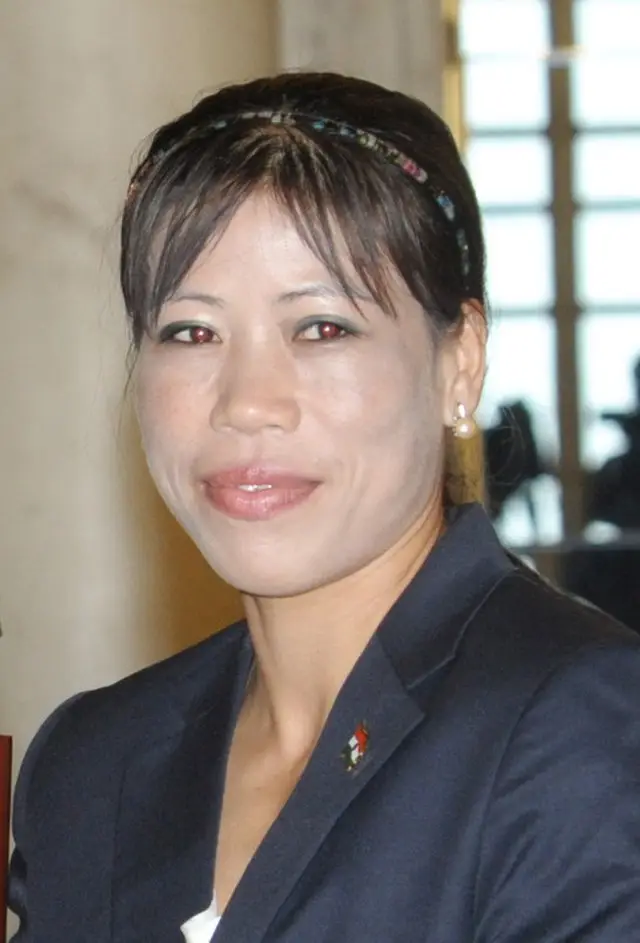Olympic history: More women than men at 2028 Los Angeles Games; ‘merit based’, says IOC

The 2028 Summer Olympics in Los Angeles are still over three years away, but they’re already making waves — and history. For the first time since the modern Games began, women are expected to outnumber men in participation, marking a transformative moment in global sports.
This historic shift comes after a series of bold decisions by the International Olympic Committee (IOC), which officially announced changes to the structure of key sporting events on Wednesday. In particular, the men’s football event will be reduced from 16 to 12 teams, while the women’s football competition expands from 12 to 16 teams. Other additions include two more teams in women’s water polo and a new weight class in women’s boxing, bringing more opportunities for female athletes across multiple disciplines.
A Milestone Years in the Making
These changes tip the scale in favor of female representation. Women will now occupy 5,655 athlete spots across 36 sports, compared to 5,543 for men. While the difference might seem modest, the symbolism and significance are anything but.
For many, this marks the culmination of a long struggle for equal opportunity on the world’s biggest sporting stage. Boxing legend Mary Kom, a pioneer in Indian women’s sport, welcomed the move with pride and a hint of nostalgia. “It’s the kind of opportunity we could only dream of when I started,” she said. “Today’s generation of women athletes will grow up in a more supportive world, and that’s a victory in itself.”
Kom, who famously clinched a bronze at the 2012 London Olympics, had to wait until that year for women’s boxing to be included. Before 2012, the Olympic doors remained closed for female boxers, and even after inclusion, only three weight categories were allowed for women versus ten for men. That has steadily changed over the years, and now in LA, female boxers will have seven weight categories, closing the gap even further.
From Paris to LA: A Leap Forward
The 2024 Paris Olympics were a turning point, as they marked the first edition with gender-balanced events — each gender had an equal number of competitive events. But LA 2028 goes one step further by ensuring women surpass men in athlete participation.
IOC sports director Kit McConnell emphasized that the decision wasn’t just symbolic. “We made every decision based on merit and data. The popularity of women’s sports — from ticket sales to TV viewership — has soared,” he said. “Events featuring women athletes drew huge crowds in Paris. In some cases, they even outperformed the men’s events.”
McConnell also pointed to increased media coverage and global investment in women’s sports as major factors behind the IOC’s decisions. “We’ve seen nations step up their game, putting resources into developing women’s teams just to qualify for these additional spots,” he explained.
America’s Role in Women’s Sports
It’s no coincidence that this historic leap is happening in Los Angeles. The United States has been at the forefront of the push for gender equality in sports, and its influence can’t be ignored.
The U.S. women’s football team — one of the most successful in the sport’s history — has long been a torchbearer in this fight. From winning titles to taking their own football federation to court over pay disparity, the American women’s team has set the tone for the world.
Their landmark victory in 2022, when they secured equal pay and benefits through a historic agreement, sent ripples through the sports world. It also demonstrated what’s possible when athletes stand united for change.
McConnell acknowledged this while discussing the expansion of the women’s football event. “Women’s football is growing rapidly, especially in countries like the U.S.,” he noted. “We wanted to reflect that momentum in the Olympic Games.”
Incidentally, it was also the U.S. that introduced women’s football to the Olympic roster in 1996 — and promptly won gold. With five Olympic titles to their name, the American women’s team is expected to be a major attraction in LA 2028.
Beyond the Numbers: A Cultural Shift
The IOC’s move comes at a time when professional sports are still grappling with issues of gender inequality. Many elite competitions continue to fall short of full parity, citing revenue, broadcasting rights, and audience demand as excuses. From tennis and cricket to athletics and football, stories of unequal pay and missed opportunities continue to surface.
But the Olympics — as a global platform — have the power to challenge and shift perceptions. With LA 2028, the Games are not just showcasing athletic excellence; they are also promoting a broader social message.
“It’s not just about adding spots,” said McConnell. “Every additional team, every new category, represents years of hard work, investment, and change. Nations are now willing to back their women athletes, and we are seeing the results.”
A New Era for Indian Sports?
India, too, could see a stronger female presence in LA. At the Paris 2024 Games, India sent 45 women athletes out of a 110-member contingent. With the women’s hockey and cricket teams aiming to qualify, that number could rise significantly in 2028.
In a country where women athletes have often outshone their male counterparts on the international stage — think of PV Sindhu, Mirabai Chanu, or Lovlina Borgohain — the increasing emphasis on gender parity is likely to accelerate sporting opportunities for the next generation.
Final Thoughts
Los Angeles 2028 will not just be another edition of the Summer Olympics. It will be a celebration of equality, representation, and progress. For the first time in Olympic history, women will not just participate equally — they will lead the way.
The road to LA still has a few years left, but one thing is certain: the future of the Games is not just gender-balanced — it’s female-forward.






